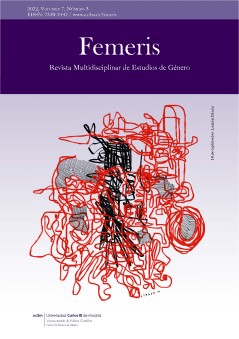Alignments and misalignments between feminists and Madres de Plaza de Mayo in Buenos Aires (1982-1986)
Abstract
This work deals with the convergences between feminists and Madres de
Plaza de Mayo in Buenos Aires throughout history, seen from a women’s history perspective.
Whilst a broad context is considered, the study focuses on the final years of the dictatorship and the first years of democracy that followed –between 1982 and 1986, precisely–, a point in
time in which feminism in Buenos Aires was readjusting within the public sphere and human
rights organisations were opening to other social organisations, which included some Madres
de Plaza de Mayo mothers approaching feminist initiatives and propositions. Convergences as
well as tensions risen between feminist activists and Madres de Plaza de Mayo members are
approached by analysing several sources (oral and written testimonies, press releases and
documentation belonging to the organisations, mainly) and revising available bibliography on
the subject, considering that both feminisms and human rights organisations were key actors
in the struggle against the dictatorship and the country’s democratisation. Events and initiatives
in which both actors participated are considered, as well as the visions each group –or
some of their members– built regarding the other group’s activism.
Downloads
FEMERIS es una revista del Instituto de Estudios de Género pertenenciente a la Universidad Carlos III.
Los textos publicados en esta revista están –si no se indica lo contrario– bajo una licencia Reconocimiento-Sin obras derivadas 3.0 España de Creative Commons. Permite Atribución-NoComercial-SinDerivadas 3.0 España.
La licencia completa se puede consultar en:http://creativecommons.org/licenses/by-nd/3.0/es/deed.es




